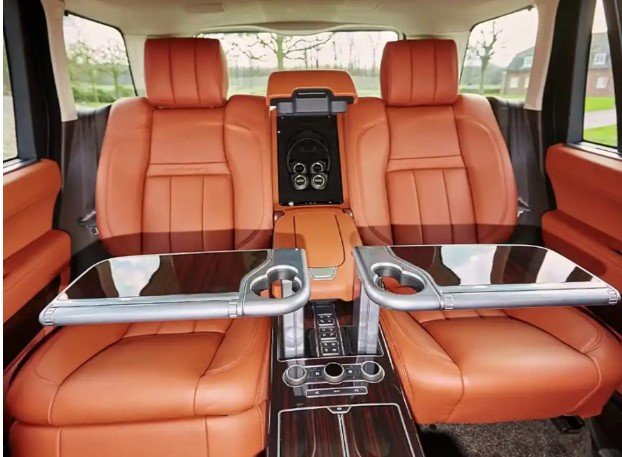Introduction
Many of us have seen or experienced the common problem of cars overheating. Consider this: The temperature gauge suddenly rises while you’re heading out on an expedition in your Range Rover while driving down the highway. There are several reasons why a Range Rover may overheat, so it’s not unusual.
This thorough article will discuss the many possible causes of your Range Rover’s overheating and how to fix it if you notice steam pouring under the hood or your temperature gauge creeping into the red zone. Let’s get started.
Why Does an Automobile Overheat?
First of all, what does an overheating car mean? Elevated engine temperature may indicate a serious issue that must be fixed immediately. Several systems help regulate your vehicle’s temperature. Engine temperature may rise due to one of these losing effectiveness.
- Cooling System Leakage: What’s causing my car to overheat? In most cases, the solution is a cooling system leak. This system comprises the radiator, hoses, water pump, head gasket, and thermostat housing. If any of these parts break, your car may leak coolant.
- Coolant Hose Blockage: The blockage may be another problem in the coolant system. Debris and grime buildup could impede the cooling system’s performance.
- Inappropriate Coolant Mixture: Like most cars, your Range Rover needs a 50/50 water-to-coolant ratio. Using the incorrect coolant or the coolant-to-water ratio may cause overheating. If unsure, ask skilled repair specialists about the best coolant combination for your Range Rover!
- Radiator Problems: Leaks and obstructions may also affect your radiator. Like the cooling system, radiator issues can worsen rapidly without professional assistance.
- Broken Water Pump: Although a broken water pump is not as severe as a damaged radiator, it can still cause an automobile to overheat if it cannot efficiently supply coolant to the necessary areas.
How to Avoid Overheating Your Car
Maintaining your Range Rover regularly is essential to avoiding overheating problems. You can take the following precautionary actions:
- Frequent Coolant Inspections and Replacements
Check your coolant levels regularly and add more as necessary. Depending on the model, adhere to Range Rover’s suggested coolant change intervals.
- Examine Belts and Hoses
Check coolant hoses for cracks or damage regularly. It is also essential to examine the condition of the drive belt that powers the water pump.
- Upkeep of Radiators
Always keep the radiator clean and clean of debris. Consider flushing occasionally to remove any sediments that may have built up over time.
- Respond to Warning Indications Quickly
When strange smells, increasing temperature gauges, or other potential overheating symptoms appear, don’t wait. Take quick action before it’s too late. Driving a Range Rover that is overheating can cause severe engine damage.
- Make Use of the Proper Coolant
Use the coolant type that Range Rover recommends for your vehicle. Using the incorrect coolant can lead to corrosion and lower cooling system efficiency.
- Regular Servicing
Ensure a qualified Range Rover mechanic familiar with these cars performs routine maintenance on your Range Rover. These professionals have the expertise to spot potential threats early and prevent overheating.
Conclusion
Always remember the importance of professional assistance to prevent your car from overheating. Overheating is a significant issue that can occur with any vehicle. Studying
- the primary causes of overheating,
- learning how to spot it,
- and implementing a few easy preventative actions
will help keep your Range Rover from giving you problems.
Range Rover repair in Dubai should be top of your to-do list. To enjoy your Range Rover, watch for warning signals to prevent overheating and potential engine damage. Remember that despite their durability, Range Rovers still require regular maintenance.
Therefore, if you occasionally notice symptoms like overheating, you should get professional assistance to diagnose the problem. If your car’s cooling system is faulty and you are unsure what needs to be changed to guarantee efficient operation, seek professional guidance as soon as possible.
Visit a reputable Range Rover service facility to see if any issues need to be rectified so that this premium car can continue to travel without experiencing any problems when it is time to drive again.
FAQs
- Which symptoms are typical of an overheating engine?
If you are experiencing engine problems, keep an eye out for these symptoms:
- Too high of a gauge
- The engine’s steam
- Burning odours
- Odd sounds coming from the air conditioner
- Engine performance is poor.
- Why is my car overheating and leaking coolant?
A leak, a broken radiator, or a malfunctioning water pump could be the cause. Look underneath the vehicle to verify the coolant cap’s sealing.
- How come my car is overheating even when the coolant is full?
Overheating can occur even with full coolant due to a malfunctioning fan, clogged radiator, or faulty thermostat. Have it examined to uncover hidden items and take quick action to prevent engine trouble if you see these symptoms.



